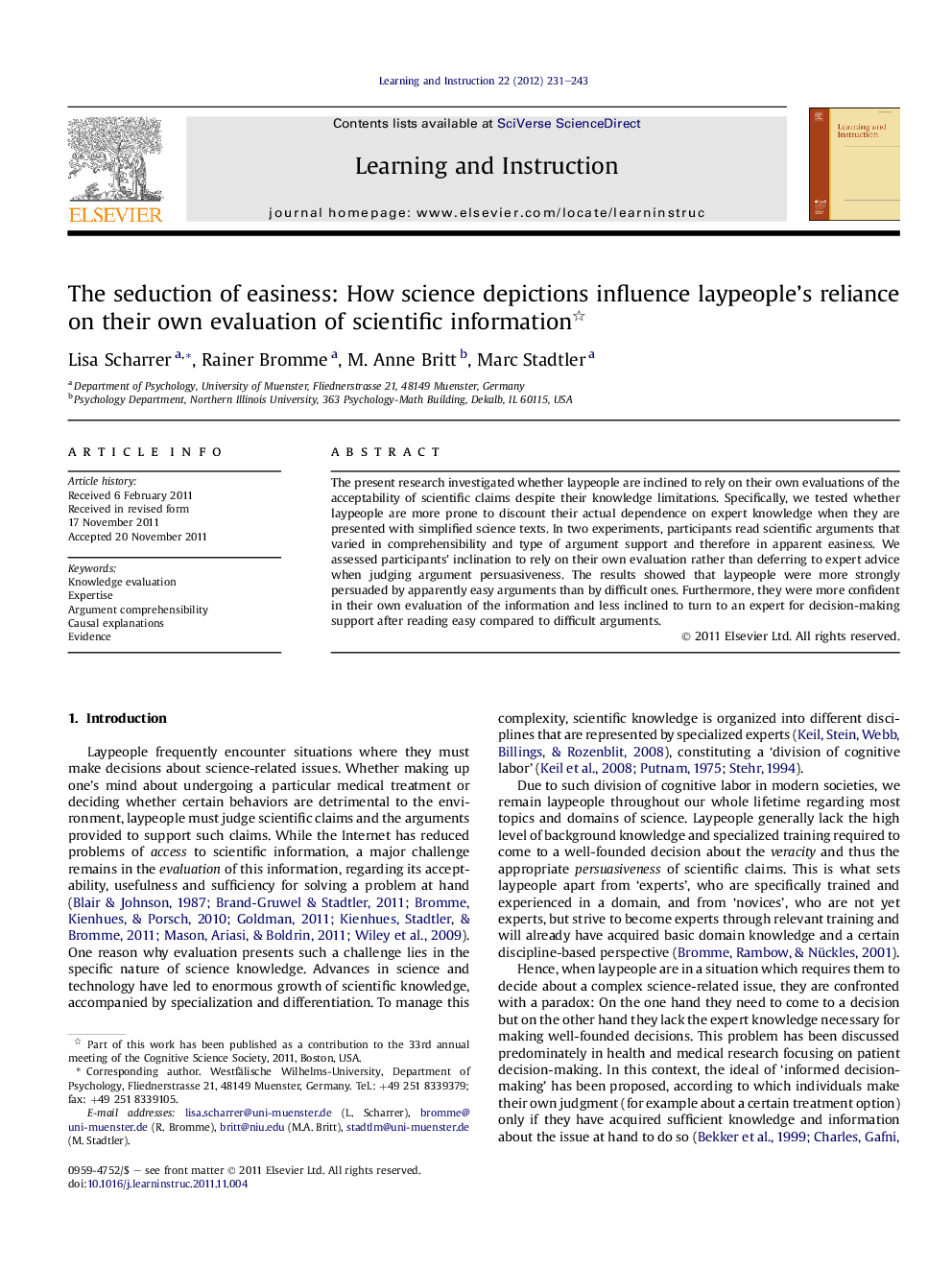| Article ID | Journal | Published Year | Pages | File Type |
|---|---|---|---|---|
| 365697 | Learning and Instruction | 2012 | 13 Pages |
The present research investigated whether laypeople are inclined to rely on their own evaluations of the acceptability of scientific claims despite their knowledge limitations. Specifically, we tested whether laypeople are more prone to discount their actual dependence on expert knowledge when they are presented with simplified science texts. In two experiments, participants read scientific arguments that varied in comprehensibility and type of argument support and therefore in apparent easiness. We assessed participants’ inclination to rely on their own evaluation rather than deferring to expert advice when judging argument persuasiveness. The results showed that laypeople were more strongly persuaded by apparently easy arguments than by difficult ones. Furthermore, they were more confident in their own evaluation of the information and less inclined to turn to an expert for decision-making support after reading easy compared to difficult arguments.
► We examined laypersons’ reliance on their own evaluation of science arguments. ► Lay readers are more strongly persuaded by easy than by difficult science arguments. ► Laypersons are less inclined to seek out expert advice after reading easy arguments. ► Reading easy science texts leads laypeople to discount their knowledge limitations.
